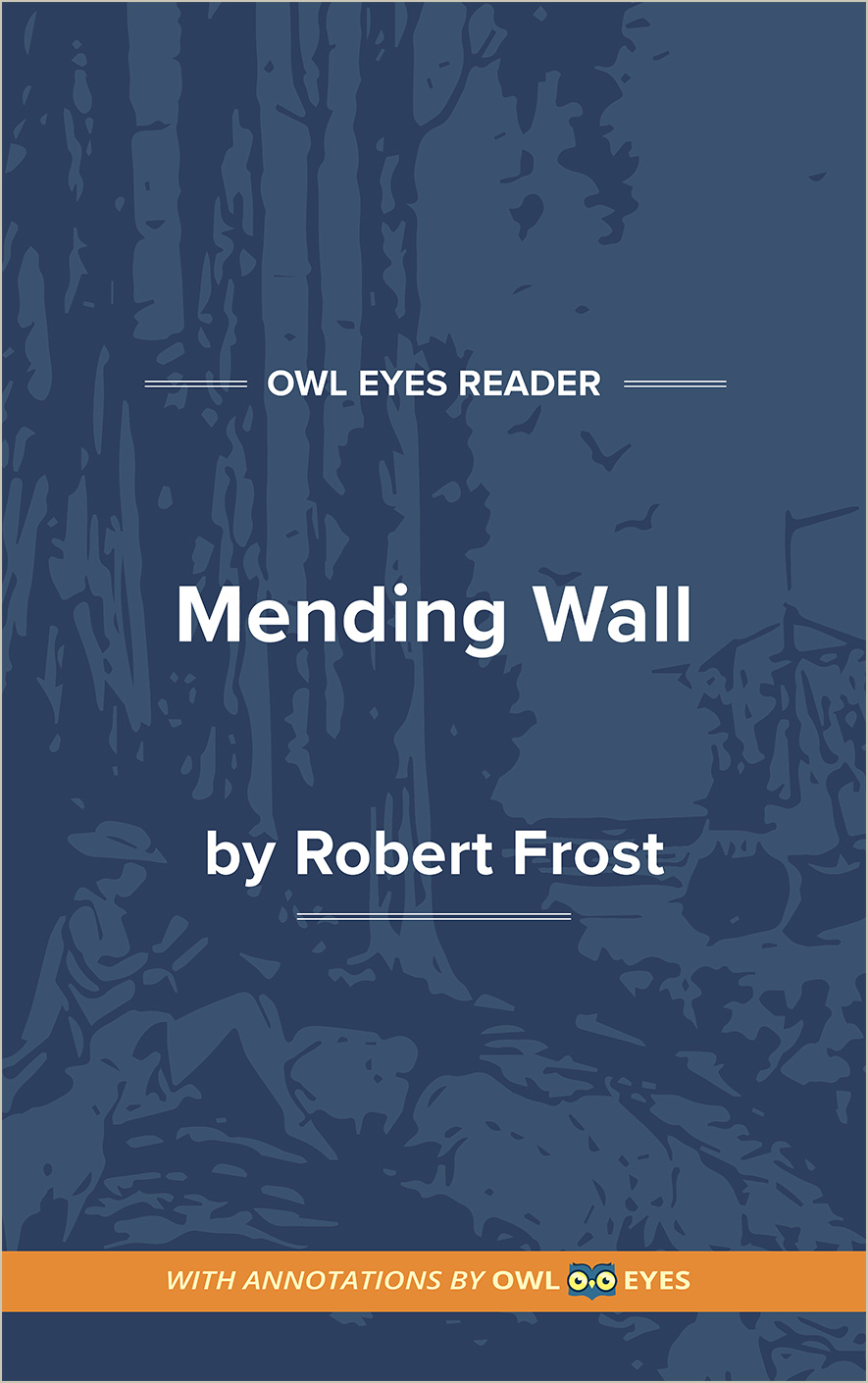Analysis Pages
Allusion in Mending Wall
Allusion Examples in Mending Wall:
Text of the Poem
🔒"like an old-stone savage armed...." See in text (Text of the Poem)
"But it's not elves exactly,..." See in text (Text of the Poem)
"Spring is the mischief in me,..." See in text (Text of the Poem)

